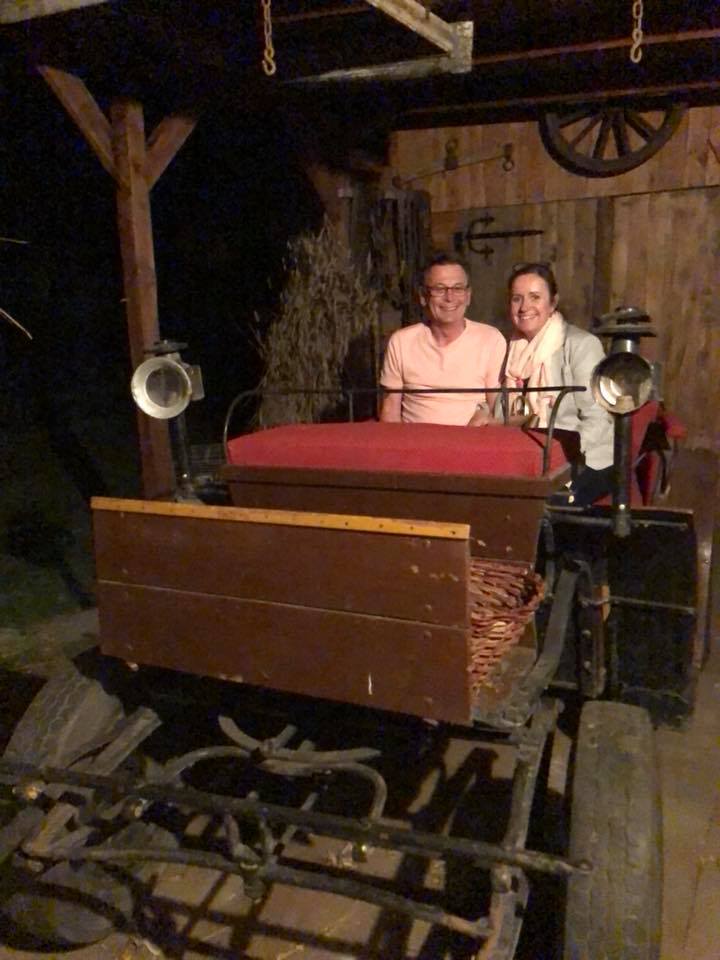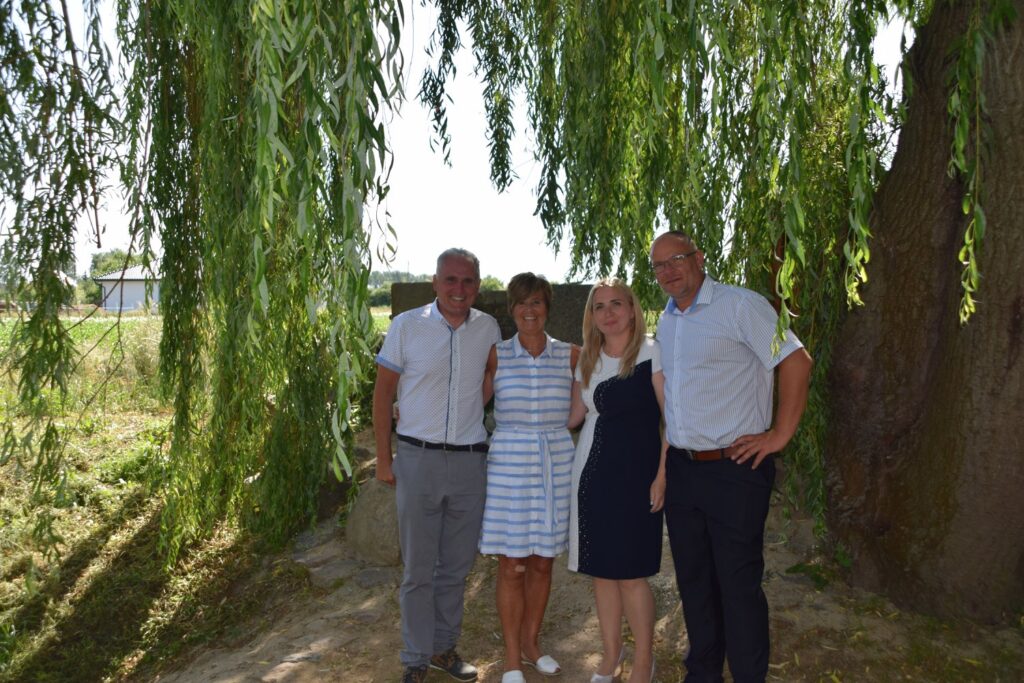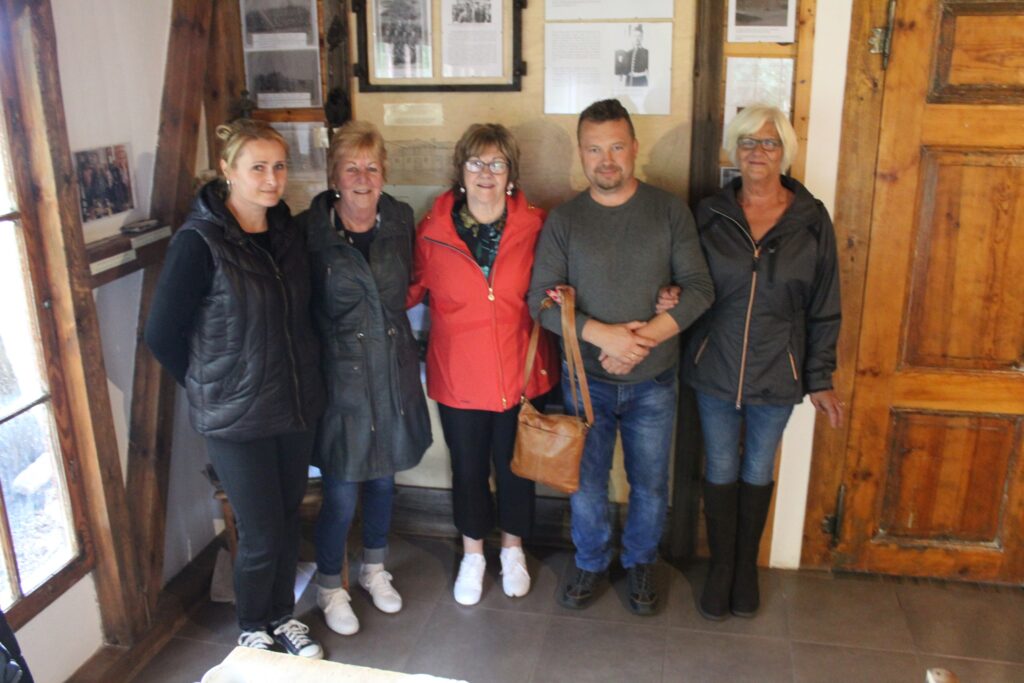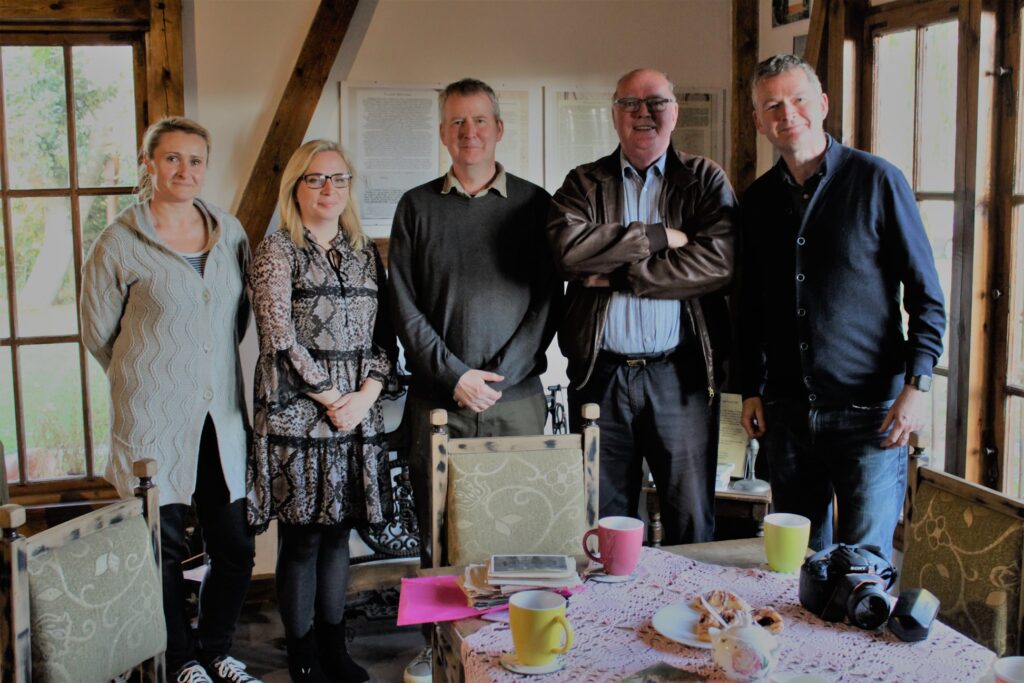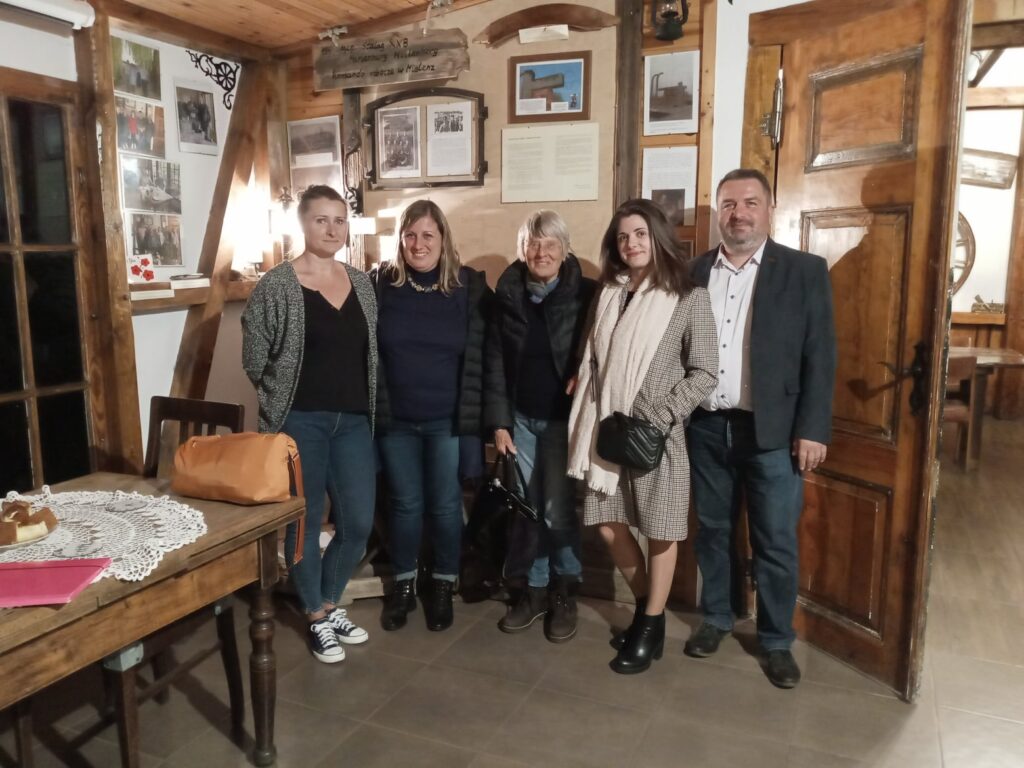Komando robocze w Mielenz stalagu XXB
Na terenie tutejszego gospodarstwa znajduje się budynek mieszkalny, którego część gospodarczą, a dokładnie stajnię pod spichlerzem władze niemieckie w czasie II Wojny Światowej przeznaczyły na komando robocze dla około 20 w większości brytyjskich jeńców oddelegowanych tu ze stalagu XXB w Malborku (dawniej Marienburg). Pan Henryk (dawniej Horst), który jako dziecko mieszkał nieopodal, pamięta imiona niektórych z nich: Alan, Artur, Jacob, Harry i Józef. Ich zadaniem była pomoc w pracach gospodarskich na terenie Miłoradza (dawniej Mielenz). Na noc jeńcy musieli jednak wracać do podobozu pilnowanego przez wachmana, który zawsze wieczorem odnotowywał, czy wszyscy się stawili. Pan Henryk szczególnie ciepło wspomina Józefa – Szkota, który pracował w gospodarstwie jego mamy. Kiedy Józef zachorował matka Henryka czyniła starania, aby przez Czerwony Krzyż odesłać chorego do jego ojczyzny. Udało się. Po wojnie nawiązali nawet kontakt. Słowom wdzięczności nie było końca.
Dziś Pan Henryk ma 83 lata. Razem z żuławską ziemią pamięta piękne lata spokoju i okrutne czasy końca wojny. Historia Miłoradza widziana oczami małego chłopca została spisana i znajduje się w zakładce „Wielka Ucieczka 1945”.
Więcej informacji
Forgotten Heroes – commando of Stalag XX B in Mielenz/Miłoradz
Po otwarciu Izby Pamięci w 2018 r. i odsłonięciu tablicy pamiątkowej poświęconej jeńcom przebywającym w tutejszym komandzie roboczym odwiedzają nas potomkowie jeńców przebywających w stalagach na terenie teraźniejszej Polski.
A working party of Stalag XXB Marienburg Willenberg
MIELENZ
Because of the war most of the men who lived in Mielenz had to serve in the army. It was German Army because this area used to belong to Germany and since 1920 (Treaty of Versailles) to Free State of Danzig. Mielenz (today Miłoradz) was inhabited by German people. Most of them were peaceful and hard – working farmers.
11 km from
Mielenz there was a German POW Main Camp located near Marienburg (today
Malbork/Poland). It was a multinational camp for 33,000 of British, French,
Italian, Russian, Belgian and Serbian soldiers. A lot of British POWs were
Scotts from the 51st Highland Division captured at St Valery in France in 1940.
CSM Fulton of the Seaforths was a Man of Confidence (the leader) for the whole
of Stalag XX B. He had an office in Marienburg town in the German Camp
Kommandatur at Sandhof.
Many of POWs worked in commandos
around Marienburg. There was one (or even two) in Mielenz. At this homestead
there were about fifteen British POWs working on farms and at the baker’s. POWs
were polite, helpful and very young men. At night the soldiers gathered in a small
room and were guarded by a German – called a Wachmann. Their room was neat and
tidy. As the British POWs received the Red Cross parcels they possessed some
goods like cigarettes, bars of chocolate, powdered milk, coffee etc.
Henryk Burchard was nine years old then but he remembered some of prisoners’
first names: Arthur, Alan, Jackob, Harry and Joseph. Their surnames and POW
numbers are unknown. Alan and Arthur worked for the local baker – Neumann.
Joseph helped on a farm of the Lietz family (Henryk’s parents).
The building inhabited by the POWs in Mielenz had to be demolished a few years ago. It was connected to the hosts’ flat and there was a secret hole between the POW building and the host flat. The British soldiers were sent Red Cross parcels which made their life a bit easier. At night when a Wachmann (the guard) went to sleep they shared their “treasure” with the farmers through the small secret hole in the wall. They posted them cigarettes and sweets.
Today in the Hall of Memory visitors can see some items connected with the former commando: a padlock, a metal window frame, a wooden window frame, knives and a soap dish found in the commando at the end of the WW2.
One day before winter German stopped the working commando and took all the prisoners to the main camp Stalag XX B. „At 11.30 pm on 22nd January 1945 most of the camp except the sick and the English doctors, padres and nursing orderlies were assembled in two ragged columns in the big square, everyone pulling little sledges, all clad in all the clothes they possessed and began slowly filling out of the camp gates, taking two hours to get clear. It was virtually impossible to guess at the number of POWs of all nationalities in the camp on 22 January as so many had come in from commandos to the east but it must have been eight and ten thousand, of which two or three thousand were British. That night was the beginning of three and a half months of Hell” (Brigadier A. Crook, Barbed wire doctor. One doctor’s war).






